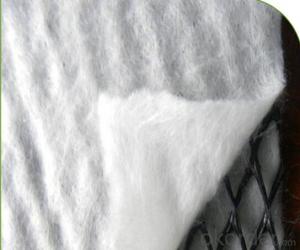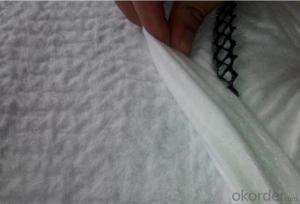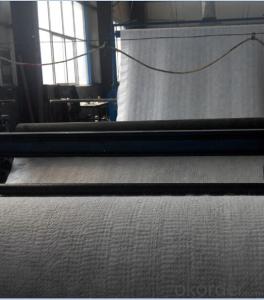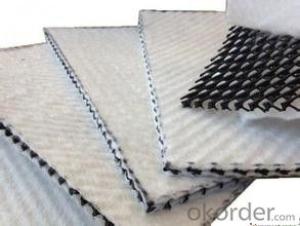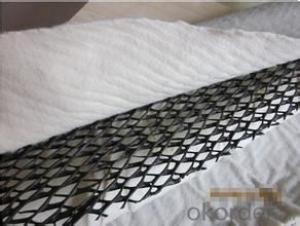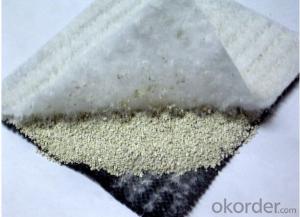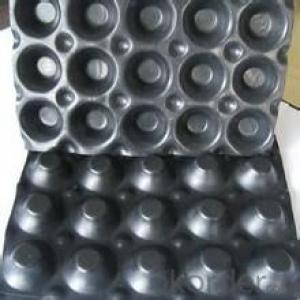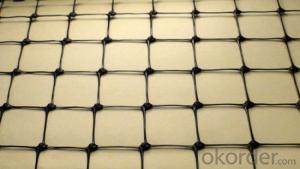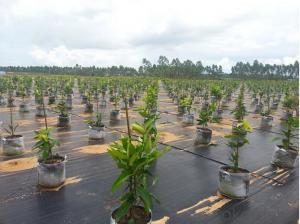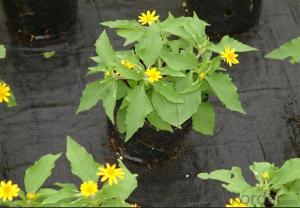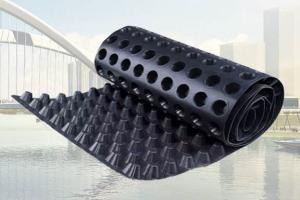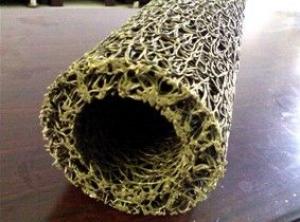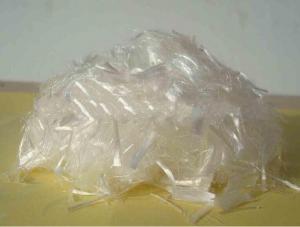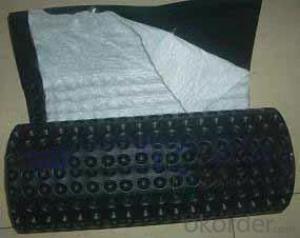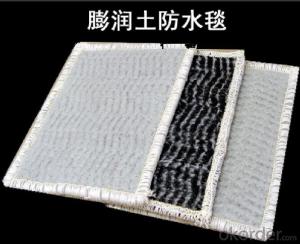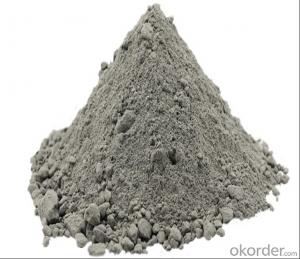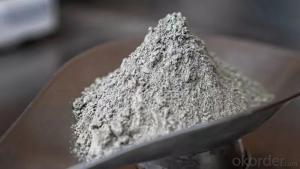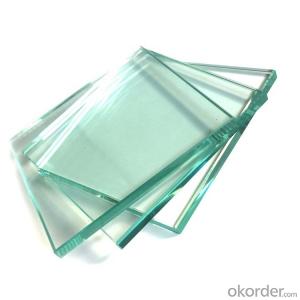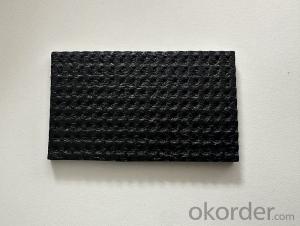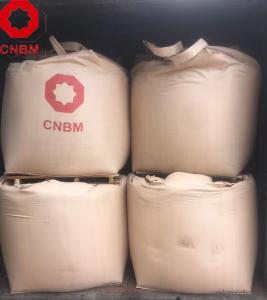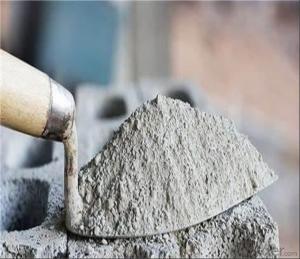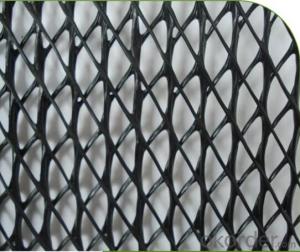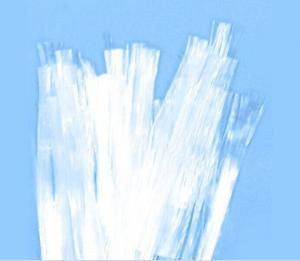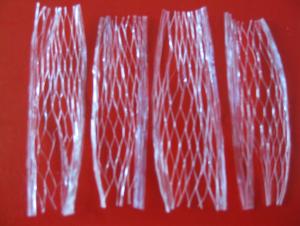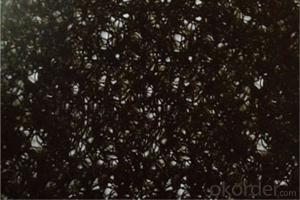Geocomposite Drainage Geonet Liner HDPE
- Loading Port:
- Qingdao
- Payment Terms:
- TT OR LC
- Min Order Qty:
- 2000 m²
- Supply Capability:
- 200000 m²/month
OKorder Service Pledge
OKorder Financial Service
You Might Also Like
Three-dimension Composite Drainage Network Introduction
Geonet can be used in the soft soil stabilization, base reinforcement, embankments over soft soils, seacoast slope protection and reservoir bottom reinforcement, etc
It prevents the slope rock from falling down ,which avoids the hurt to the human beings and the vehicle on the road; It prevents the road dregs packed by geonet from being washed away ,avoids the roadbed distortion and improves the stability of the roadbed; laying the geonet reinforces the road surface ,avoids development of the reflection crack. As reinforcing material of filling soil in retaining walls, it disperses the earth body stress and restricts the side-displacement. The stone cage, made of geonet, can prevent erosion ,collapsing and lost of water and soil when being used in dyke and rock slope protetion
Specification
Geonet thickness: 5-8mm; Width: 2-4m; Length as requested
Geotextile can be needle punched polyester geotextile, continuous filament PET nonwoven geotextile or Polypropylene nonwoven geotextile, and the unit weight normally 200g/m2.
Features
1. Excellent drainage function, able to bear long time high pressure load
2. High tensile and shear strength
3. Able to protect its long time and stable hydraulic conductivity
4. Able to bear more than 2000kpa compression load, its anti-pressure capacity much higher than common drainage network
5. Corrosion resistant, acid and alkali resistant.
Application
Landfill drainage; Roadbed and road drainage; railway drainage; tunnel drainage; underground structure drainage; the retaining back wall drainage; garden and sports ground drainage.
Geonet is made of HDPE and anti-ultraviolet additives
1. Anti-aging, corrosion resistance
2. Highway and railway subgrade: effectively distribute load, improve its bearing capacity and stability and prolong service life
3. As layer of highway slope so that geonet can prevent landslide and protect water and soil, and beautify the environment
4. In reservoir and rive dykes to effectively prevent landslide; in the coastal engineering because of its soft good toughness, corrosion strong characteristic to buffer wave swept and corrosion
FAQ
1. Which payment do you accept?
For you convinience,our payment can be L/C,TT
2. Is free sample available?
We can supply free samples if you need.
3. How about your quality?
We have strict quality control system, we make testing on incoming raw material and finished products. Your third party testing is also welcomed. With high quality, our products are used on government projects at home and abroad. Our product quality is accepted by clients from all over the world
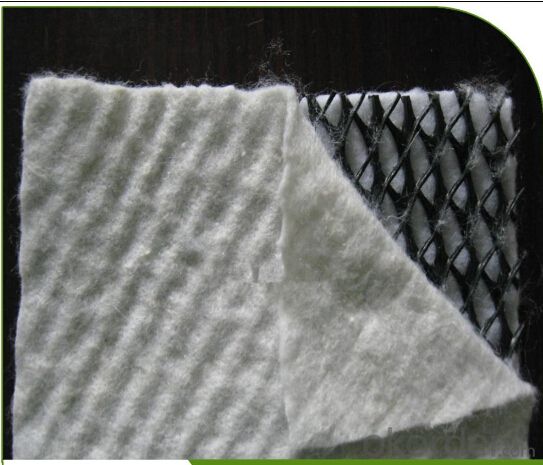
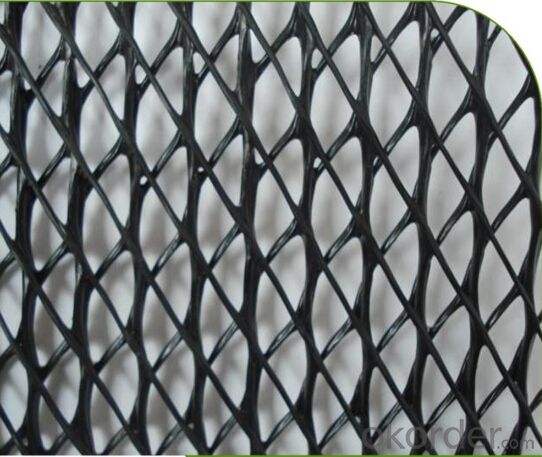
- Q:How do geosynthetic clay liners contribute to environmental containment?
- Geosynthetic clay liners (GCLs) contribute to environmental containment by providing a barrier against the migration of contaminants. The clay component of GCLs possesses excellent hydraulic conductivity, swelling capacity, and self-sealing properties. These characteristics allow GCLs to effectively restrict the movement of liquids and gases, preventing the spread of pollutants into surrounding soil and water sources. Additionally, GCLs act as a physical barrier, minimizing the risk of leakage and protecting the environment from potential harm.
- Q:What are the benefits of using concrete pipes in earthwork?
- The benefits of using concrete pipes in earthwork include durability, strength, and longevity. Concrete pipes are highly resistant to damage from external forces, such as heavy loads or pressure from surrounding soil, making them a reliable choice for underground applications. Additionally, concrete pipes have a smooth interior surface, which allows for efficient flow of fluids or materials, minimizing the risk of blockages. Moreover, concrete pipes are cost-effective, as they require minimal maintenance and have a long lifespan, reducing the need for frequent replacements.
- Q:How do earthwork products contribute to soil moisture retention?
- Earthwork products, such as mulch, compost, and soil amendments, play a crucial role in retaining soil moisture. These products create a protective layer on the soil surface, reducing evaporation and preventing water loss. They also improve the soil structure, allowing it to hold more water and reducing runoff. Additionally, earthwork products enhance soil fertility and microbial activity, which further contributes to improved moisture retention. Overall, the use of these products helps to conserve water and promote healthier, more moisture-rich soil.
- Q:What are the different thicknesses available for earthwork products?
- The thicknesses available for earthwork products can vary depending on the specific product, but common thicknesses range from a few inches to several feet.
- Q:How do earthwork products help with soil stabilization?
- Earthwork products help with soil stabilization by providing a physical barrier that prevents erosion and reduces the movement of soil particles. They can be used to reinforce slopes, control water flow, and protect against the impact of heavy machinery or foot traffic. Additionally, these products can improve the overall stability and load-bearing capacity of the soil, ensuring long-term durability and preventing soil degradation.
- Q:How do geotextile tubes compare to traditional construction methods?
- Geotextile tubes are a more cost-effective and environmentally friendly alternative to traditional construction methods. They offer faster installation, reduced labor requirements, and minimized disturbance to surrounding areas. Additionally, geotextile tubes are highly durable and provide excellent erosion control and sediment containment.
- Q:Are earthwork products suitable for use in reservoir construction?
- Yes, earthwork products are commonly used in reservoir construction. These products, such as soil, rocks, and aggregates, are essential for building the embankments and slopes of reservoirs. They provide stability, erosion control, and help to retain water. Additionally, earthwork products can be engineered and compacted to meet the specific requirements of reservoir construction, ensuring their suitability for use in this application.
- Q:Are there any specific earthwork products available for bridge abutment reinforcement?
- Yes, there are specific earthwork products available for bridge abutment reinforcement. Some commonly used products include geosynthetic materials like geotextiles, geogrids, and geocells. These products are designed to enhance soil stability, increase load-bearing capacity, and provide erosion control in bridge abutment construction.
- Q:What are the advantages of using geosynthetic clay liners in wastewater treatment?
- Geosynthetic clay liners provide several advantages in wastewater treatment. Firstly, they offer excellent hydraulic conductivity, preventing the leakage of wastewater into the surrounding environment. Secondly, they possess high chemical resistance, ensuring the liner remains intact even in the presence of harsh chemicals commonly found in wastewater. Additionally, geosynthetic clay liners are highly durable and have a long lifespan, minimizing the need for frequent replacements. Moreover, they are cost-effective compared to alternative liner materials. Overall, geosynthetic clay liners play a crucial role in protecting the environment, prolonging infrastructure life, and reducing operational costs in wastewater treatment facilities.
- Q:How are geocells used for load support in industrial yards?
- Geocells are used for load support in industrial yards by providing a stable and reinforced foundation for heavy equipment, vehicles, and storage areas. These cellular confinement systems are filled with aggregate material, such as gravel or sand, and placed on the ground to create a strong and flexible support structure. This helps distribute the weight of the loads evenly, preventing soil deformation or rutting, and ensuring the stability and longevity of the yard's infrastructure.
1. Manufacturer Overview |
|
|---|---|
| Location | |
| Year Established | |
| Annual Output Value | |
| Main Markets | |
| Company Certifications | |
2. Manufacturer Certificates |
|
|---|---|
| a) Certification Name | |
| Range | |
| Reference | |
| Validity Period | |
3. Manufacturer Capability |
|
|---|---|
| a)Trade Capacity | |
| Nearest Port | |
| Export Percentage | |
| No.of Employees in Trade Department | |
| Language Spoken: | |
| b)Factory Information | |
| Factory Size: | |
| No. of Production Lines | |
| Contract Manufacturing | |
| Product Price Range | |
Send your message to us
Geocomposite Drainage Geonet Liner HDPE
- Loading Port:
- Qingdao
- Payment Terms:
- TT OR LC
- Min Order Qty:
- 2000 m²
- Supply Capability:
- 200000 m²/month
OKorder Service Pledge
OKorder Financial Service
Similar products
New products
Hot products
Hot Searches
Related keywords
